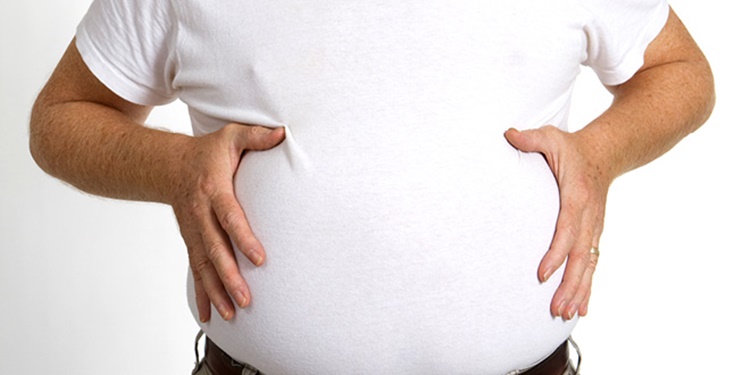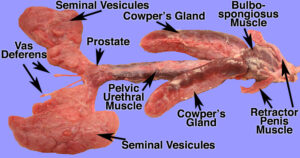Have you ever enjoyed a delicious meal of Chinese food only to find yourself feeling very bloated afterwards? You’re not alone. Many people experience bloating after eating Chinese cuisine, and while it might seem puzzling, there are several reasons why this happens. In this article, we’ll dive into the possible causes of bloating after eating Chinese food, identify common ingredients that can contribute to this discomfort, and provide practical tips to help you avoid or manage bloating.
Why Does Bloating Occur?
Bloating is a common digestive issue where the stomach feels full and swollen. It can be uncomfortable and even painful. Understanding why bloating happens, especially after eating specific types of food, can help you make better dietary choices and avoid discomfort.
1. Overeating
One of the simplest reasons for feeling very bloated after Chinese food is overeating. Chinese cuisine often comes with generous portions of tasty dishes. Eating too much in one sitting can stretch your stomach and cause bloating. Eating slowly and paying attention to portion sizes can help prevent this problem.
2. High Sodium Content
Chinese food can be high in sodium, which is commonly used in sauces and seasonings. Sodium helps enhance flavors but also causes the body to retain water. This water retention can lead to bloating. If you’re sensitive to sodium or have high blood pressure, it’s especially important to monitor your sodium intake.
3. MSG (Monosodium Glutamate)
MSG is a flavor enhancer often used in Chinese cooking. While it’s generally recognized as safe, some people are sensitive to it and may experience bloating or other digestive issues. If you think MSG might be causing your discomfort, try choosing dishes that don’t list MSG as an ingredient or ask the restaurant if they can prepare your meal without it.
Common Ingredients That Can Cause Bloating
Chinese food is known for its rich flavors and diverse ingredients. However, some ingredients can contribute to bloating more than others. Here are a few common culprits:
1. Soy Sauce
Soy sauce is a staple in Chinese cuisine, adding a salty and savory flavor to dishes. However, it is high in sodium, which can lead to water retention and bloating. Opting for low-sodium soy sauce or using less of it can help reduce bloating.
2. Fried Foods
Many Chinese dishes are fried, such as spring rolls and crispy noodles. Fried foods are higher in fat, which can slow digestion and lead to bloating. Choosing steamed or boiled options instead can be gentler on your stomach.
3. Garlic and Onions
Garlic and onions are frequently used in Chinese cooking for their strong flavors. However, they can be difficult to digest for some people and may lead to gas and bloating. If you’re sensitive to these ingredients, ask for your food to be prepared without them.
4. Bean Sprouts
Bean sprouts are often added to Chinese dishes for crunch and freshness. While they are nutritious, they can also cause bloating in some people due to their high fiber content. If you notice that bean sprouts are a trigger for you, consider asking for them to be left out of your meal.
How to Avoid Bloating After Eating Chinese Food
If you love Chinese cuisine but want to avoid feeling bloated afterward, there are several strategies you can try. Here’s how to enjoy your meal without the uncomfortable side effects:
1. Choose Your Dishes Wisely
When dining out or ordering Chinese food, opt for dishes that are less likely to cause bloating. Look for steamed options, such as steamed vegetables or dumplings, instead of fried ones. Avoid dishes with heavy sauces or high sodium content.
2. Watch Your Portion Sizes
Eating large amounts of food in one sitting can contribute to bloating. Try to control your portion sizes by eating smaller amounts and pacing yourself. It’s also helpful to listen to your body and stop eating when you start to feel full.
3. Ask for Modifications
Don’t be afraid to ask for modifications to your meal. Requesting less soy sauce or asking for dishes without MSG can make a difference. Many restaurants are happy to accommodate special requests to make your meal more comfortable.
4. Stay Hydrated
Drinking plenty of water throughout the day can help with digestion and reduce bloating. Avoid drinking large amounts of water during meals, as this can sometimes exacerbate bloating. Instead, sip water slowly throughout the day.
5. Eat Slowly and Mindfully
Eating slowly and chewing your food thoroughly can aid digestion and reduce the likelihood of bloating. When you eat quickly, you may swallow air along with your food, which can contribute to bloating.
What to Do If You Feel Bloated
If you do end up feeling very bloated after eating Chinese food, there are several remedies you can try to alleviate discomfort:
1. Walk It Off
A gentle walk after eating can help stimulate digestion and reduce bloating. Avoid vigorous exercise, but a light stroll can help move gas through your digestive system.
2. Drink Herbal Teas
Herbal teas like peppermint, ginger, or chamomile can help soothe your digestive system and reduce bloating. These teas have natural properties that can ease discomfort and help with digestion.
3. Try Over-the-Counter Remedies
If you frequently experience bloating, you might consider over-the-counter remedies such as simethicone, which helps break down gas bubbles in the digestive tract. Always consult with a healthcare provider before taking any medication.
4. Avoid Carbonated Beverages
Carbonated beverages can contribute to bloating by adding extra gas to your digestive system. Opt for still water or herbal teas instead to help reduce bloating.
When to Seek Medical Advice
While occasional bloating after eating Chinese food is usually not a cause for concern, frequent or severe bloating may warrant medical attention. If you experience persistent discomfort, significant changes in your digestion, or other symptoms, it’s important to consult with a healthcare provider. They can help determine if there’s an underlying issue and recommend appropriate treatments.
Conclusion
Feeling very bloated after eating Chinese food can be an unpleasant experience, but understanding the reasons behind it can help you take steps to avoid and manage this discomfort. By choosing dishes wisely, moderating portion sizes, and making mindful eating choices, you can enjoy Chinese cuisine without the bloating that sometimes follows.
Whether you’re dining out or cooking at home, remember that small adjustments can make a big difference in how you feel afterward. If bloating becomes a recurring problem, don’t hesitate to seek medical advice to ensure your digestive health is in good shape.
Enjoy your meals and stay curious about how different foods affect your body. If you have any questions or need more tips on managing bloating, feel free to reach out!













